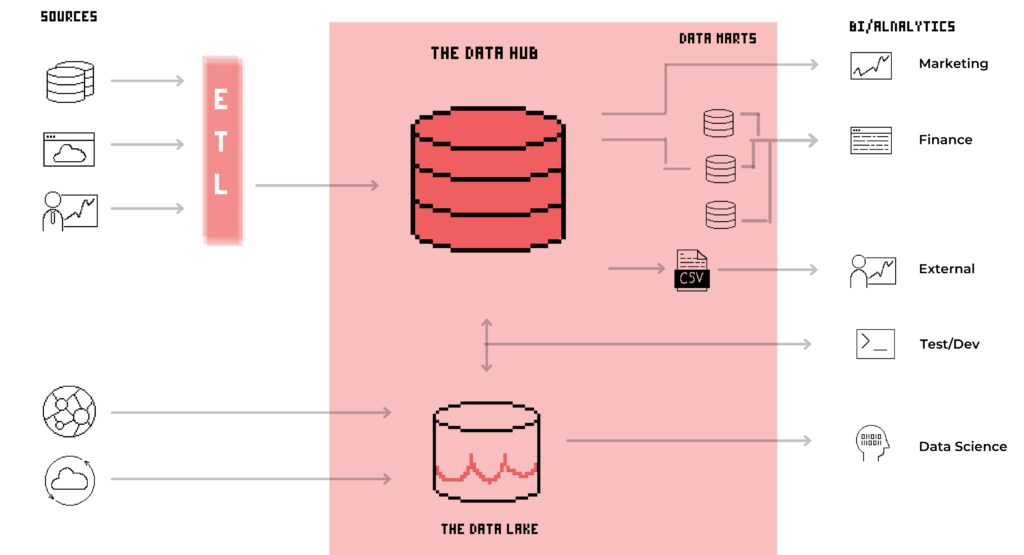what is the data hub?
What is the data hub and why are these architectures on the rise? [Benefits and Examples]
A data hub is a centralized service that connects all of your IT systems, whether it’s web applications, IoT devices, SaaS solutions, or core business platforms like CRM or ERP.
It’s a technology, but should be seen more as an approach. It transfers data without data friction at its core. Using point-to-point integrations to move data through your IT environment, are much more expensive and very limited compared with the hub.


THE DATA HUB
combining available resources to a central collection
Cultivating the useful ingredients of your land and select the best equipment to fine-tune your dish.
Distinction from the Data Warehouse and Data Lake
A data hub doesn’t imply a central physical repository. It’s like a transit station on a rail network, not a place where all passengers converge. A hub is a part of the infrastructure, not an endpoint like a data warehouse or data lake.
- The hub acts as a central access point for various systems and emphasizes data integration.
- A Data Warehouse is a structured repository optimized for reporting, analytics, and decision-making.
- A Data Lake is a scalable repository for raw and unstructured data, allowing flexible exploration and analysis.
Benefits of The Data Hub
- Integration of data stored in silos into a unified system.
- Flexible and high-efficiency workflow management system.
- Better visibility and easy access to data across the company.
- Integrated system with integrated interface
Use Case Examples
Data hubs are an approach and not just a technology. Which is adopted by companies to centralize the view of data across the board. The illustration gives an idea about the structure and interactions we can create for you

